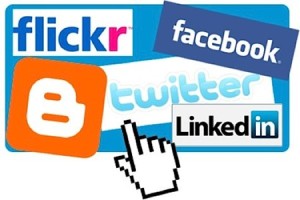Social Networks Creating a Breach in Security?
Social Networks act as facilitators of our simulated self’s online. Not a virtual identity, but an extension of our real identities. So what happens when we extend our personal lives into a scope that may leave us visible in ways we’d never sign-up for to begin with?
Foursquare Security breach unlocked by proactive hacker: Foursquare Safety Issues?
Foursquare is one of the more controversial social networks available, as many don’t want people knowing where they are at any given time. Those fears have gotten real as hacker Jesper Andersen revealed a security breach with the Foursquare website. This hole allowed him to snag data from 70 percent of all check-ins in the San Francisco area over the last three weeks. That adds up to around 875,000 check-ins. Wired explains how Andersen’s hack worked:
Phonedog.com reports that Jesper Anderson revealed a breach in Foursquare’s infrastructure allowing him access to nearly 1 million check-ins within the San Francisco Bay Area’s Ferry Building location. Foursquare has since addressed the issue, but the concerns that a circumstance such as this evokes with a technology that already has some on the fritz is quite prominent.
 Similarly, there was a recent scare that took place with an Indiana couple involving the use of Facebook. Now this is a very different concern then the one mentioned above, but far more starting as far as the consequential results: Facebook Robbery by Status Update
Similarly, there was a recent scare that took place with an Indiana couple involving the use of Facebook. Now this is a very different concern then the one mentioned above, but far more starting as far as the consequential results: Facebook Robbery by Status Update
As CNN reports the couple made a status update on Facebook regarding attending a local concert, only to have one of their Facebook “friends” use the opportunity to rob their home while they were out. Since social media (and it’s web vehicles such as Facebook, Foursquare, Gowalla, Geo-tagged Tweets, etc) is representation of “the real world”, such occurrences shouldn’t come as a surprise. These networks are simply tools, how we use them depends on the motive.
I have discussed on this blog before the dangerous of social media. I love social media! I am a web 2.0-er just like you all, but for those of us who are a bit more cautious during the walk of life (some might say paranoid), it’s prevelant to look at some of the negative possibilities, within an otherwise enormously positive tech-based social movement.
Yes, this is an extreme example and in all fairness to Facebook, this is something out of the social networks control, and probably something that will occur with little frequency. However, it is still alarming and noteworthy to this discussion, and what about the smaller, less noticeable nuances of privacy breach? How about the general notion of the boundary lines that segment the elements of your personal life ambiguously blurring into the public scope? Is it just as easy as, “if you don’t want someone to know something, don’t post it!”? Or do all the control freaks of the world lose just a bit a control when entering one of these environments?
Each one of those questions could lead to its own blog post, for the sake of this conversation let’s concentrate on the general idea of privacy. Security cams, traffic cams, inter-connected virtual relationships, investigative tactics by employers or by prospective love interests, e-businesses forming on the very idea of marketing personal identification values to those in the public who show interest to buy them, on and on and on…
 Point being, buyer beware! Even if you don’t care about anyone knowing this stuff about you, it might come back to haunt you one day. Remember Facebook’s Terms of Use that cause a big fuss and were later rescinded by the network due to bad PR?
Point being, buyer beware! Even if you don’t care about anyone knowing this stuff about you, it might come back to haunt you one day. Remember Facebook’s Terms of Use that cause a big fuss and were later rescinded by the network due to bad PR?
These issues ultimately stretch beyond web 2.0 and into the new realm of technology we live in. Technology in general, as it helps advance us, allows shifts and changes us. Political events mixed with technology can lead to really weird shit; i.e. Patriot Act! Is that really still happening?
So without diving too far into the deep-paranoia end the pool, let’s navigate and live in the simulate “real world” of web 2.0 with more conscious. Let’s not simply look at these web networks as forms of interaction on a linear basis, let’s not just use them as fun relational toys, or elements of entertainment, or even facilitators of marketplace or other practical use, without being knowledgable of their prowess. A double-edged prowess, limitless in gain, and when the motive presents itself, one could argue, limitless in damage!
I leave you with an idea that may have seemed fantastically unrealistic just 15 years ago, what do we think about the direction it’s gone in now?
Until Next Time,
Mikey
Michael Bhrad Bay Area Web Design & SEO Consultant | Internet Marketing Consultant Profile 🙂
